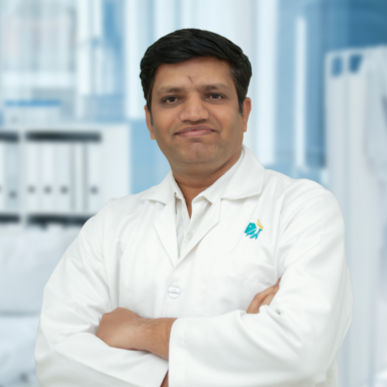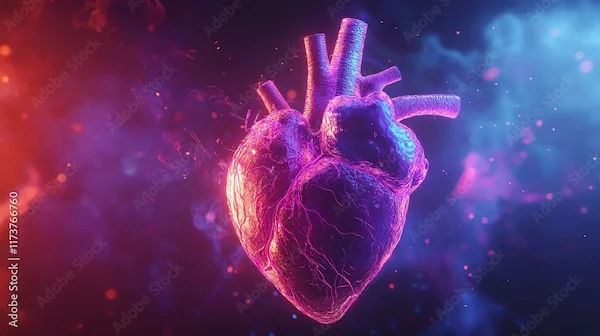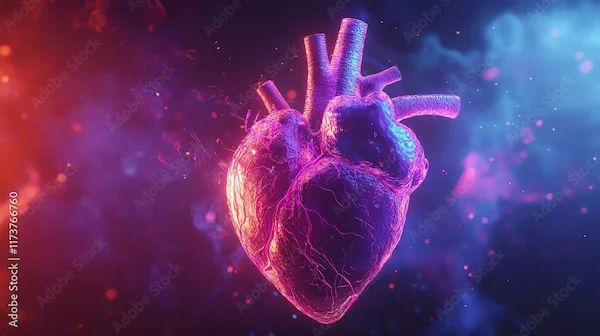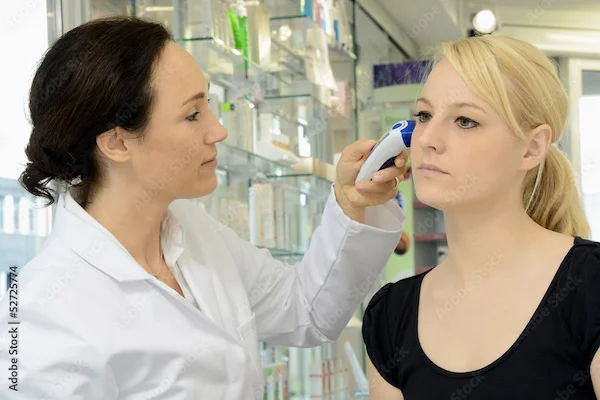Sudden Cardiac Arrest: Causes, Warning Signs, and How to Save a Life
Understand sudden cardiac death (SCD): its causes, warning signs, and the critical steps you can take to save a life with CPR and an AED. Learn about prevention and risk factors.

Written by Dr. Shaik Abdul Kalam
Reviewed by Dr. Dhankecha Mayank Dineshbhai MBBS
Last updated on 13th Jan, 2026

Sudden Cardiac Death (SCD) is a terrifying and often misunderstood medical emergency. It strikes without warning, claiming millions of lives globally each year. Contrary to popular belief, it's not the same as a heart attack. SCD is an electrical problem—a sudden, unexpected loss of heart function triggered by a malfunction in the heart's intricate electrical system. This article demystifies SCD, breaking down its causes, the critical warning signs everyone should know, and the immediate, life-saving actions you can take if you witness it. Understanding these facts could empower you to save a life, whether it's a loved one, a colleague, or a stranger on the street. We'll guide you through prevention strategies, screening options, and how modern medicine offers hope for those at risk.
What is Sudden Cardiac Death? It’s Not a Heart Attack
SCD is the abrupt, unexpected loss of heart function, breathing, and consciousness, typically caused by a rapid, chaotic heart rhythm called ventricular fibrillation. When the heart enters this state, it quivers uselessly instead of pumping blood effectively to the brain and vital organs. Death can occur within minutes if normal rhythm is not restored.
The Electrical Malfunction Behind SCD
Think of your heart's rhythm as a sophisticated electrical circuit. A sudden glitch in this system can cause the lower chambers (ventricles) to beat rapidly and erratically. This is ventricular fibrillation, and it halts effective blood flow instantly. It’s like a power grid short-circuiting, causing a complete blackout in the body.
SCD vs. Heart Attack: Knowing the Difference is Critical
This is a crucial distinction. A heart attack is a "plumbing problem." It occurs when a blocked artery stops blood flow to a part of the heart muscle, causing that muscle to die. A person is usually conscious and experiencing symptoms like chest pain. [Diagram comparing a heart attack to SCD]
Sudden cardiac arrest is an "electrical problem." The heart stops beating effectively. The person collapses immediately, loses consciousness, and stops breathing. A heart attack can trigger an electrical problem that leads to SCD, but they are not the same event.
Who is at Risk? Understanding the Causes of Sudden Cardiac Arrest
Most SCD events are linked to an underlying, often undiagnosed, heart condition.
Underlying Heart Conditions (The Primary Culprits)
Coronary Artery Disease (CAD): This is the most common cause in adults over 35. Plaque buildup narrows the arteries, reducing blood flow to the heart muscle and creating vulnerable heart tissue that can disrupt electrical impulses.
Cardiomyopathy and Heart Failure: These conditions involve a weakened or enlarged heart muscle. This structural damage can interfere with the heart's electrical pathways, significantly increasing the risk of life-threatening arrhythmias.
Genetic and Electrical Disorders (Channelopathies): These are often the cause of SCD in young, seemingly healthy athletes and individuals. Conditions like Hypertrophic Cardiomyopathy (abnormally thick heart muscle), Long QT Syndrome, and Brugada Syndrome are inherited and can cause fatal arrhythmias under physical stress or even at rest.
Lifestyle and Other Risk Factors
While an underlying condition is usually present, certain factors elevate risk: a previous heart attack, family history of SCD or heart disease, obesity, diabetes, smoking, and a sedentary lifestyle. High blood pressure and high cholesterol also contribute to the underlying CAD that sets the stage for SCD.
Don't Ignore the Signs: Symptoms and Warning Signs of SCD
Recognizing the signs can be the difference between life and death.
Pre-Existing Symptoms to Discuss with a Doctor
If you experience unexplained fainting or near-fainting spells (syncope), especially during exercise; racing or irregular heartbeats (palpitations); persistent chest pain; or extreme shortness of breath, it is essential to see a cardiologist. A family history of unexplained sudden death under age 50 is also a major red flag. If you have a family history of heart conditions or experience any concerning symptoms, consulting a cardiologist online with Apollo24|7 for an initial evaluation can be a proactive first step.
The Immediate Signs of Cardiac Arrest
The event itself is dramatic and sudden:
Sudden collapse
No pulse
No breathing
Loss of consciousness
Sometimes, warning signs occur an hour before, including chest discomfort, shortness of breath, weakness, and heart palpitations. However, often, there are no warnings at all.
Consult Top Heart Specialists
The Chain of Survival: Your Actions in the First Few Minutes Save Lives
Bystander action is the most critical factor for survival. The American Heart Association's "Chain of Survival" outlines the steps: [Infographic of the Chain of Survival]
Step 1: Call for Emergency Help
The moment you see someone collapse, check for responsiveness. Shake them and shout. If they are unresponsive and not breathing normally, immediately call for an ambulance or have someone else call.
Step 2: Start CPR Immediately (Hands-Only CPR)
Don't stop to check for a pulse. Place the heel of one hand on the center of the chest, place your other hand on top, and push hard and fast at a rate of 100-120 beats per minute (to the beat of "Stayin' Alive"). Chest compressions manually circulate blood to the brain, buying precious time until a defibrillator arrives.
Step 3: Use an AED (Automated External Defibrillator)
An AED is a portable device that can analyze the heart rhythm and deliver an electric shock to reset it. These devices are designed for public use and provide simple audio instructions. Turn it on and follow the prompts. Using an AED within the first 3-5 minutes of collapse can increase survival rates by over 50%.
Can SCD Be Prevented? Screening and Prevention Strategies
While not all SCD is preventable, risk can be dramatically reduced.
Cardiac Screening for At-Risk Individuals
For those with a strong family history or symptoms, screening is vital. This may include an Electrocardiogram (ECG/EKG) to check the heart's electrical activity, an Echocardiogram (ultrasound of the heart) to view its structure, and sometimes stress testing or genetic testing. Apollo24|7 offers convenient home collection for blood tests that screen for cholesterol and diabetes, key risk factors for heart disease, making it easier to stay on top of your health.
Medical Interventions: ICDs and Medications
For high-risk patients, the most effective prevention is an Implantable Cardioverter-Defibrillator (ICD), a small device placed in the chest that continuously monitors the heartbeat and delivers a shock to correct a dangerous rhythm. Medications like beta-blockers can also help control arrhythmias. [Illustration of an ICD]
Lifesaving Lifestyle Changes for Heart Health
Managing underlying conditions is key. This includes:
Eating a heart-healthy diet low in saturated fats and sodium.
Engaging in regular, moderate exercise.
Maintaining a healthy weight.
Quitting smoking and limiting alcohol.
Effectively managing blood pressure, cholesterol, and diabetes.
Life After an Event: For Survivors and Families
Surviving SCD is a life-altering event. Survivors require comprehensive cardiac rehabilitation and often receive an ICD to prevent recurrence. For families who have lost a loved one, the grief is compounded by the shock and mystery. Seeking genetic counseling and cardiac screening for first-degree relatives is crucial, as it can identify inherited conditions and prevent further tragedies..
Conclusion
Sudden Cardiac Death is a devastating event, but it is not always a mystery or inevitable. Empowerment through knowledge is our greatest tool. Understanding the causes, recognizing the warning signs, and—most importantly—knowing how to perform CPR and use an AED can transform a bystander into a lifesaver. If you have any risk factors, however small they may seem, proactive screening and consultation with a cardiologist are invaluable investments in your health. Your heart's rhythm is the music of your life; learn to listen to it and protect it. If you have concerns about your heart health based on your family history or symptoms, don't wait. Book a consultation with a cardiologist on Apollo24|7 to discuss screening and preventive strategies tailored for you.
Consult Top Heart Specialists
Consult Top Heart Specialists

Dr. Bhethala Sharan Prakash
General Physician/ Internal Medicine Specialist
5 Years • MBBS MD
Bengaluru
PRESTIGE SHANTHINIKETAN - SOCIETY CLINIC, Bengaluru

Dr. Anand Ravi
General Physician
2 Years • MBBS
Bengaluru
PRESTIGE SHANTHINIKETAN - SOCIETY CLINIC, Bengaluru

Dr. Abhijit Vilas Kulkarni
Cardiologist
10 Years • MBBS, MD, DM (Cardio)
Bengaluru
Apollo Hospitals Jayanagar, Bengaluru
(50+ Patients)

Dr. Prashant Adeppa
Cardiologist
10 Years • MBBS, MD General Medicine, DM Cardiology (Armed Forces Medical College)
Bengaluru
Apollo Hospitals Bannerghatta Road, Bengaluru

Dr. Poorna Pushkala Natarajan
Cardiologist
5 Years • MBBS, AB (INT MED), AB (CARDIOLOGY), AB (HEART FAILURE/TRANSPLANT CARDIOLOGY)
Chennai
Apollo Hospitals Greams Road, Chennai
(50+ Patients)
More articles from Heart Attack
Frequently Asked Questions
Can a perfectly healthy young person experience SCD?
Yes. While rare, inherited conditions like hypertrophic cardiomyopathy or genetic channelopathies can cause SCD in young, athletic individuals with no prior symptoms. This is why evaluating family history is so important.
Is sudden cardiac death the same as dying in your sleep?
It can be. If a fatal arrhythmia occurs during sleep, it may not be witnessed. This is sometimes called 'sudden arrhythmic death syndrome' (SADS).
What is the survival rate for out-of-hospital cardiac arrest?
Unfortunately, it is low, often cited between 5-10%. However, survival rates can exceed 50% when a bystander immediately performs CPR and uses an AED.
Can anxiety or stress cause sudden cardiac death?
Extreme emotional stress can trigger a rare condition called 'Takotsubo cardiomyopathy' or 'broken heart syndrome,' which can sometimes lead to dangerous arrhythmias and SCD, particularly in women.
How can I get my family screened for inherited heart conditions?
If there is a history of unexplained sudden death, start with a consultation with a cardiologist or a genetic counselor. They can recommend appropriate tests, which may include ECG, echocardiogram, and specific genetic testing




